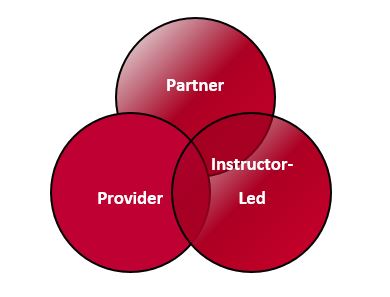Program Models
When developing an oversees project, it is important to consider the type of model that will be utilised.
- How will the program be administered?
- Who is responsible for each task during the program life cycle.
- Will you be leading the students abroad independently or will the program be supported by partner universities, third party providers or local experts?
- Will your program be sufficiently staffed to achieve learning goals and respond to emergencies?
- Are contracts required and what form of due diligence is in place?
There are a number of ways a program can be delivered.
Partner Model
These Learning Abroad projects are organised and managed by a partner university, located in Australia or overseas. Depending on the agreement, the institution may provide pre-departure, airport pick up, student support, in-country transport, accommodation, and more. Some partners can also lend a hand in the development of programs, arranging work placements and site visits to areas of interest, develop cultural excursions and more. Depending on the program design, Western staff may or may not accompany the students overseas. The Partner Institution Model requires a formal agreement between Western Sydney University and the external university.
Third Party Provider Model
Some projects utilise Third Party Providers (TPP). The core business of a Third Party Provider is the design and management of overseas programs. These organisations can provide 'off-the shelf' opportunities or can tailor a project to your specifications, incorporating many additional activities such as industry visits, expert lecturers, and complimentary travel and accommodation for staff. Depending on the program model, Western staff may or may not accompany the students overseas. If you decide to engage with a provider, there must be a Preferred Provider Agreement or equivalent in place.
Instructor-Led Model
A 'pure' Instructor-Led model means that the prospective leader takes full responsibility for every aspect of the program, with no support from a partner institution or third party provider. Apart from academic content, the leader is accountable for the operational aspects such as arranging accommodation, in-country transport, industry visits and more.
If this model is adapted, it is good practice to have a staff to student ratio of 10:1. Further, to deal with an emergency situation, all programs should have a minimum of 2 project leaders, a leader and a deputy.
Short programs require extensive knowledge and resources and unless you are a highly experienced leader, it is recommended that you take advantage of the mixed model which includes utilising partner institutions and third party providers.
Mixed Model
This is the most common and usually the safest method for delivering a program. Program leaders concentrate on different aspects of program delivery, including the academic content, whilst the partner(s) provides logistical support.
Global Learning Logistics Worksheet
To help formulate the logistical roles and the type of model you wish to utilise, use the Global Learning Logistics Worksheet.
Working with External Partners and Mitigating Risk
It is extremely important that each partner is thoroughly investigated and the right agreements are in place. Western Sydney International (WSI) is the central point to manage the establishment for all international agreements and maintains ongoing partnerships with institutions and providers around the world. The Go Global and Study Abroad team can help identify prospective partners, whilst ensuring the correct due diligence process has been followed.
If a new agreement is required, extensive due diligence is required. See the following webpages:
Commercial Agreements
If the overseas program includes a commercial arrangement, an additional contract is usually required. The contract must:
- Be reviewed by the Office of General Counsel. For legal services, use the online request form. You will need to attach all relevant documentation related to the request, as well as Dean/Director approval to approach the Office of General Counsel for advice on this matter.
- Progress through the University Procurement Process. Please consult with your School/Institute Manager or Management Accountant.
The program leader in consultation with the School/Institute is responsible for creating a program budget and assuming all financial risk associated with a Learning Abroad activity.
Further Information
Mobile options:



